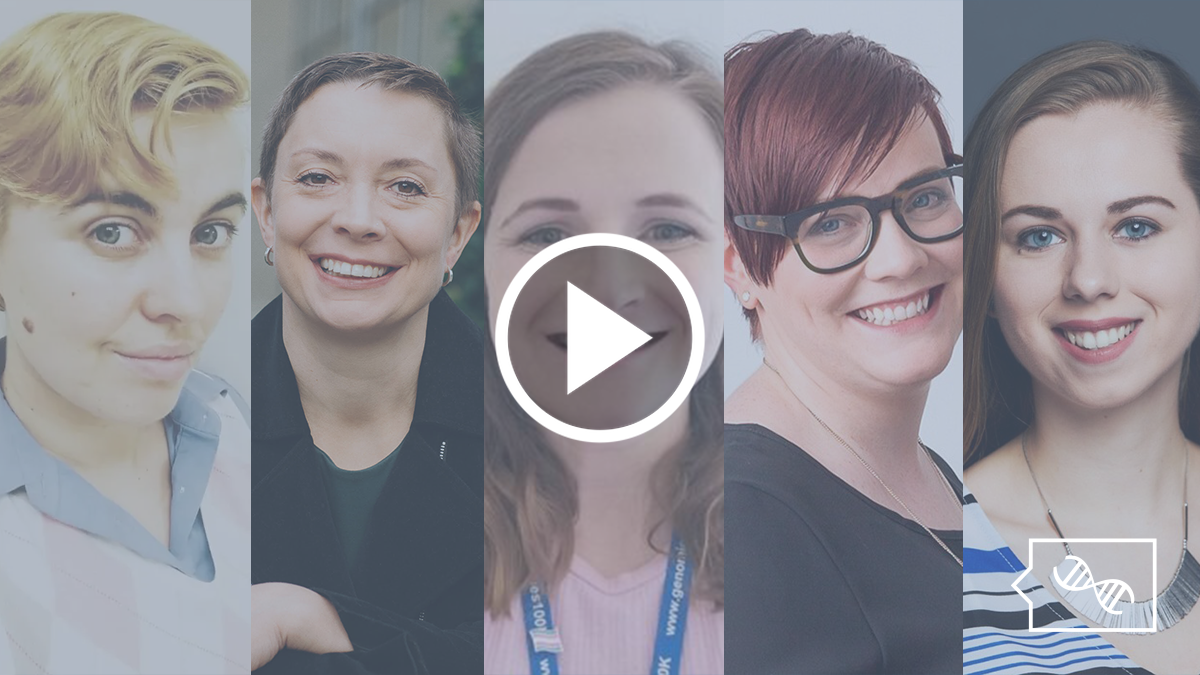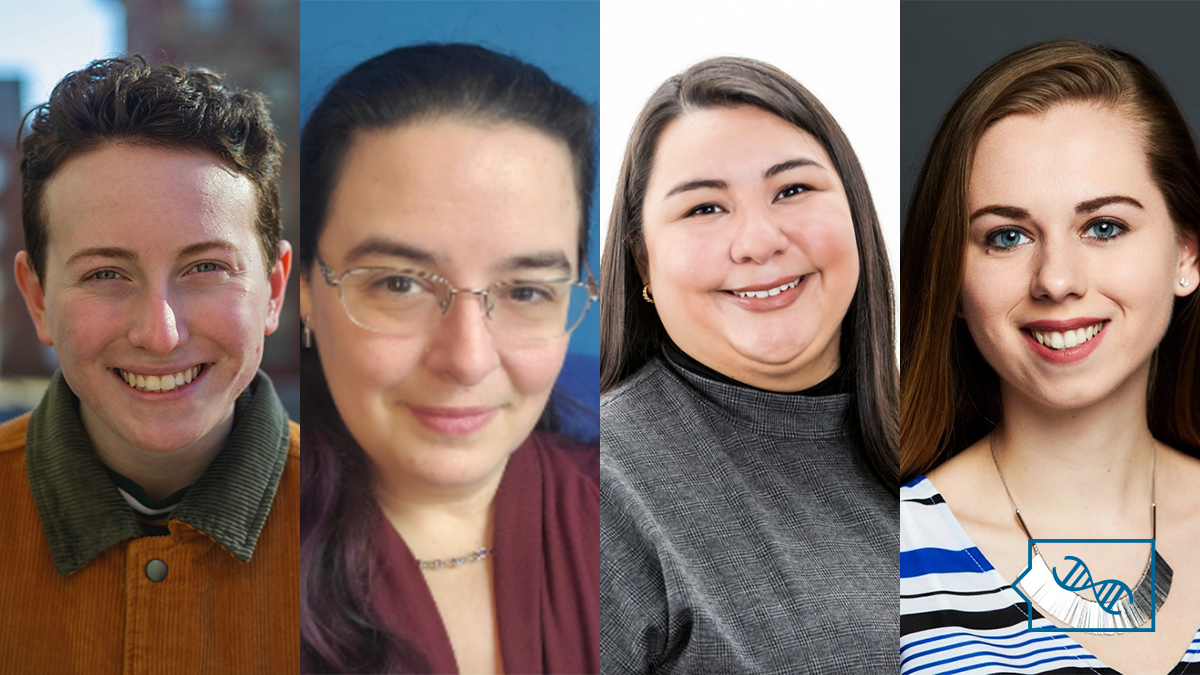Dr. Jehannine Austin is a board certified genetic counselor, Fellow of the Canadian Academy of Health Sciences, and Executive Director of the BC Mental Health and Substance Use Services Research Institute. Jehannine is a Professor in Psychiatry & Medical Genetics at the University of British Columbia whose research work primarily involves studying the impact of genetic counselling for people with psychiatric disorders and their families, but has recently moved into research on improving trans inclusion in genetic counseling. In particular, they contributed to the pedigree nomenclature revision that provides guidance on sex, gender and more. In addition to peer-reviewed publications, Jehannine has written a book, and won awards for teaching, leadership, and research.
Andy Cantor is a Senior Genetic Counselor at Lapcorp, non-binary person, and a certified trainer on trans and non-binary competency. For the last 3 years they have designed and presented trainings on genetic counseling for trans and non-binary patients. In addition, they are an active member of the Labcorp LGBTQ+ ERG with whom they provide competency training to patient service center staff and other departments across the country and internationally. They have presented at The National Society of Genetic Counselors Annual Educational Conference, NYC Genetics Taskforce, the Texas Genetic Counseling Association, the Pennsylvania Genetic Counselors Association, the UK society for genetic nurses and counselors, and provided guest lectures for genetic counseling programs. Andy is a passionate educator and advocate for the rights, acceptance, and respect of the trans and non-binary community and serves on the Cancer Special Interest Group gender inclusivity sub-committee.
Josephine Giblin is an NHS genetic counsellor working in Bristol, in the South West of England with an interest in barriers that LGBTQIA+ patients face in accessing genetics care. In the last few years, she has been particularly focused on trans and gender diverse patients with inherited cancer predisposition, leading a project to better equip genetics services to meet the needs of these patients. Recently Josephine worked with the UK Cancer Genetics Group to develop the first UK recommendations for the management of trans and gender diverse patients with inherited cancer risks.
Katie Gallagher is the Assistant Program Director at the Sarah Lawrence College Graduate Program in Human Genetics. Her Master's thesis in Human Genetics from Sarah Lawrence College focused on the education of genetic counselors on LGBTQ+ patient care through development, piloting, and assessment of a novel curriculum on this topic. She has past experience as the Lead Pediatric Genetic Counselor at the Children’s Hospital at Montefiore where she also engaged in clinical research through the NYCKidSeq genomic sequencing research study. More recently, she was a genetic counselor at Invitae Corporation before moving into her current position which is dedicated to education of genetic-counselors-in-training. Katie identifies as gay and lives in Philadelphia with her partner and their 2-year-old son.
In this panel discussion, genetic counselors and LGBTQ+ advocates discuss:
- Protecting patients during times of unprecedented legislation
- Creating psychologically safe and inclusive environments
- Supporting access to equitable care
- Representation in family history collection
- Resources and best practices to support LBGTQ+ colleagues and patients
For further reading:

